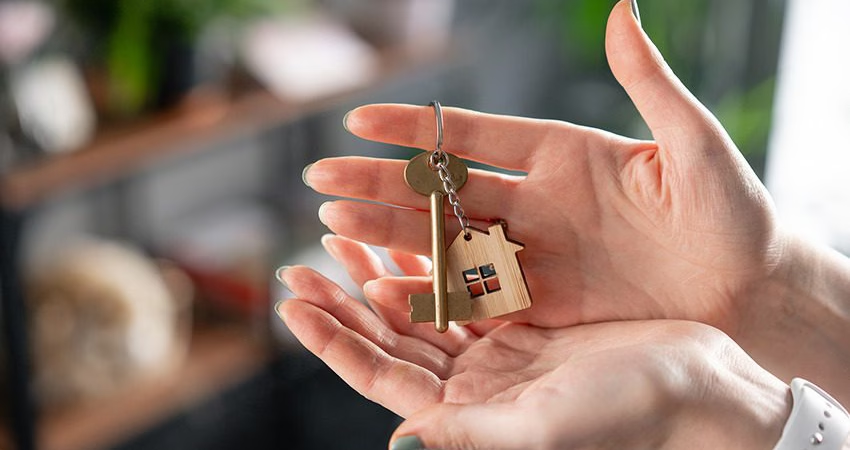The court has ordered the repossession of my property what next?
What happens when your property is repossessed? Your lender needs to follow certain steps before they can take you to court to repossess your property. They need to – 1. Inform you how much you owe them 2. Look at a request from you about changing how you pay the mortgage each month 3. Respond to any

What happens when your property is repossessed?
Your lender needs to follow certain steps before they can take you to court to repossess your property. They need to –
1. Inform you how much you owe them
2. Look at a request from you about changing how you pay the mortgage each month
3. Respond to any offer that you make them
4. Tell you why they’ve rejected an offer within 10 days
5. Give you a fair amount of time to consider any offer that they might make you
6. Give you 15 days’ notice in writing if they plan to start legal action
7. Notify you of a time and date of the repossession hearing
8. Notify your council within 5 days of receiving the court hearing date, in case you need to apply to the council as homeless.
If you’ve received a repossession order but aren’t sure what happens next, you’ve come to the right place. We Buy Any House have put together a guide to repossession so you know exactly what to expect and how to stop it.
Get a cash offer for your house today!
Can they repossess my house straight away?
Your lender will need to do several things before you go to court over the repossession-
- Inform you how much you owe them
- Look at a request from you about changing how you pay the mortgage each month
- Respond to any offer that you make them
- Tell you why they’ve rejected an offer within 10 days
- Give you a fair amount of time to consider any offer that they might make you
- Give you 15 days’ notice in writing if they plan to start legal action
- Notify you of a time and date of the repossession hearing
- Notify your council within 5 days of receiving the court hearing date, in case you need to apply to the council as homeless.
Your lender will need to send you a blank defence form once they start the repossession action against you. This form gives you the opportunity to say why you think the repossession order should be dropped. You need to return this form within 14 days.
The court will also send you copies of the claim forms for possessing your house, the date of the hearing and the contact details of the court.
What happens when I’m in court?
During the hearing, you will usually be in the judge’s chambers rather than in a courtroom. You are able to bring an advisor or a friend for moral support, and it’s imperative that you turn up to the hearing. If you don’t, it’s likely that the judge will side with your lender and allow the eviction. If you come to an agreement in court to make payments for the mortgage, you have to keep to them. If you don’t, you’ll run the risk of losing your house again.
When do I find out if my house will be repossessed?
After the hearing, a decision will be reached. The lender can only repossess your house if that is the decision that the judge chooses, but there are other decisions that the judge may pick. They could delay the hearing, set aside the case which will mean that with no decision made the hearing is finished, or they can approve the repossession order. There are other orders that the judge can decide-
- Outright possession order- you’re usually given 28 days to leave the property, after which the lender will own your house. If you don’t leave in those 28 days, the lender can then ask the court to have you evicted.
- Suspended possession order- This means that providing you make the payments as decided in court, you can stay in the house. If you stop making the payments, the lender can ask the court to evict you.
- Money order- You will have to pay the lender a regular payment agreed in court. If you don’t make these payments, the court can either action the money being deducted from your bank account, or bailiffs to come to your house and take things you own to cover the value.
- Possession order with money judgement- this is a fee added to the possession order and means that you owe money. Usually, this is from your mortgage arrears, your court fees and your mortgage lender’s legal costs. A money judgement won’t apply if you’ve paid your mortgage arrears in a suspended order, or if your lender sells your house for a higher amount than your debt with them.
If, before you’re evicted you find you’re able to start making your payments again, you can appeal to a judge and ask to delay the eviction, allowing you to stay in the property and make the payments. This isn’t guaranteed but is worth a try as it could save your house.
‘Can We Buy Any House help me sell my house?’ – Learn how we can help you today!
Can I appeal?
If you feel that the decision that the judge reached isn’t fair, you can request to appeal, but this will have to be approved by the court. If you’re accepted for the appeal, the judge will either stick with the original decision, change the decision or order a new hearing if they feel more information is needed. To get an idea of what your house may be worth, visit We Buy Any House today for a free offer.
After being repossessed, securing a new mortgage can be incredibly difficult. That’s why lots of homeowners choose to sell their house and pay the arrears off in full to limit the damage done to their credit file. To get an idea of what your house may be worth, visit We Buy Any House today for a free offer.
We buy any home in as little as 7 days, or timescales to suit you. Head to our website for more information.

